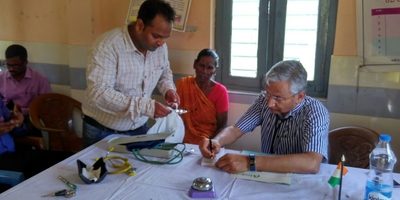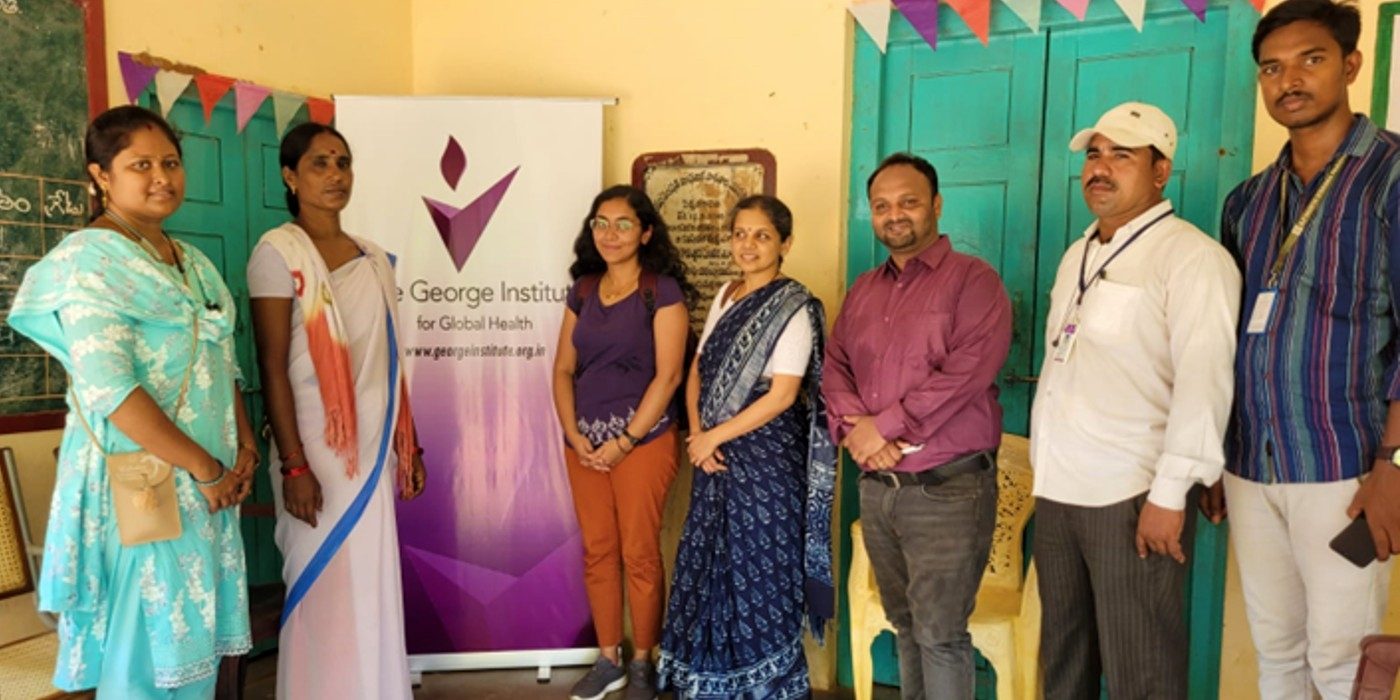
Adolescent kidney health in a CKDu endemic region: Uddanam site visit
When does the kidney injury seen in chronic kidney disease of unknown etiology (CKDu) begin? Does subclinical kidney injury related to CKDu begin in childhood or adolescence? What are the best practices for kidney health screening in this population? We are two pediatric nephrologists who recently visited the Uddanam region in Andhra Pradesh, an area with a high prevalence of kidney diseases. Our aim was to gain deeper understand the perceptions, experiences, and attitudes of community members surrounding these questions.
Dr. Vivekanand Jha, Executive Director, The George Instutitute for Global Health India, along with Dr. Balaji Gummidi, Senior Project Manager, The George Institute India and team in Uddanam organised a two-day site visit for us. On August 20, 2023, we visited the villages of Neelavathi, Kusumapuram, and Shalalputtuga. We met adults with CKD/CKDu and witnessed the deep trust that The George Institute team has built in the community, through longitudinal commitment and helping patients access much needed medications and medical services. Many patients had late-stage CKD at the time of their initial diagnosis. They expressed understanding of the concept of earlier screening for high-risk populations and in areas with high CKD prevalence, with the goal of preserving kidney function for longer. We also met two children who have late-stage CKD; they do not have CKDu but, like adults with CKDu, suffer from limited access to medications, clinical services, and renal replacement therapy. For these children, we encouraged their parents to ask the doctors specific questions that we hope will improve their care. We hope pediatric nephrology research in resource limited areas such as Uddanam will contribute to improved awareness of and access to kidney care for all children, including but not limited to those who may be at risk for developing CKDu.
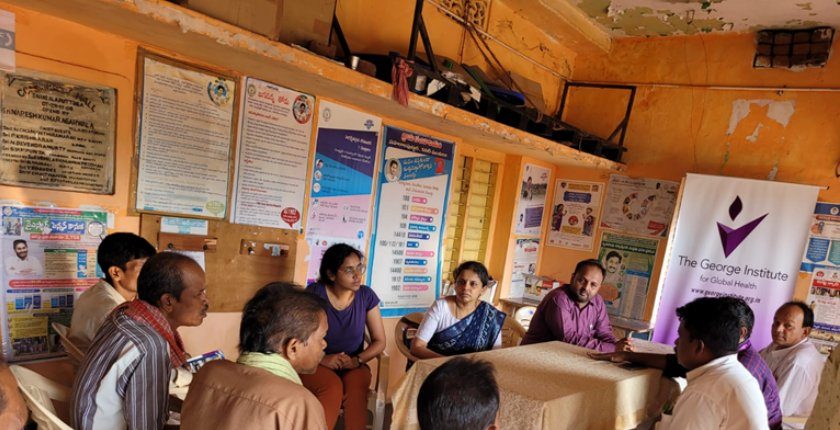
The George Institute team meets with patients with CKD/CKDu
On August 21, we met adults with CKD/CKDu and then visited a school in Rangoi village, where we attended an assembly of students in 8th, 9th, and 10th standards. During the assembly, we taught children about the function of the kidneys and ways they can protect their kidney health by establishing healthy lifestyle habits early on. The children were engaged and asked outstanding questions, likely a reflection both of their bright minds as well as the disproportionate exposure they have had to kidney disease in their families and communities. They demonstrated a desire to know more about their kidney health. Next, we went to the Palasa Community Health Center and Dialysis Center. We spoke with doctors, including those involved with a kidney disease screening program for young adults. The doctors provided insight about the social stigma related to CKDu and how they avoided perpetuating the stigma by not only screening community members but also empowering them through education and tangible resources. In the Dialysis Center, we conversed with dialysis technicians and dialysis nurses regarding vascular access, monitoring during dialysis sessions, and improving dialysis adequacy.
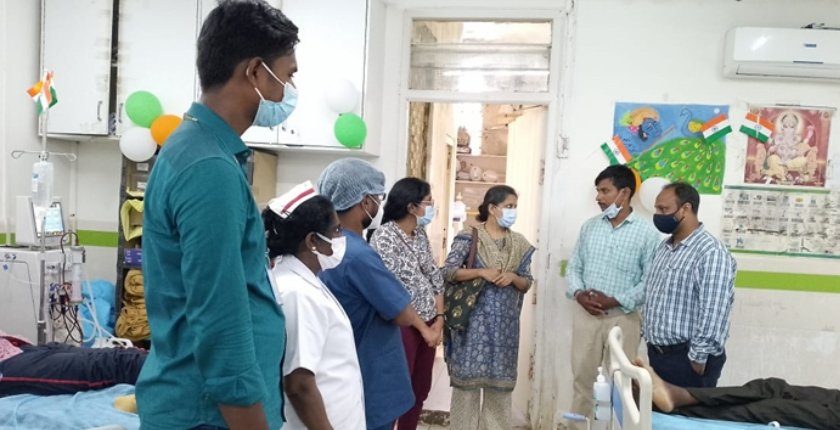
The team talks with dialysis nurses and technicians at the Palasa Dialysis Center
One of the most important aspects of our visit was meeting with and learning from The George Institute team members in the Uddanam region. We learned that most of the team members grew up in the area, which is crucial to building local, sustainable capacity for raising awareness and successfully conducting kidney research that is relevant to the community. The team members answered our questions about community demographics with ease and expertise. From them we learned that earlier screening, down to 20 years old so far, has recently become more accepted in the region, that school children already get some health screenings (not related to kidney disease) at school, and that school-based kidney health screening with parental consent and child assent is feasible because the vast majority of children are in school through 10th standard.
The lived experiences of CKDu-affected communities are important in and of themselves. They are also vital for determining best practices to assess kidney health in children and adolescents in Uddanam, which would in turn inform strategies for primary and secondary prevention of CKDu and provide insight into disease pathogenesis. After our short visit to the Uddanam region, we look forward to spending more time there in the future and applying what its people shared with us to develop a plan for evaluating adolescent kidney health that reflects the goals of the communities we visited.
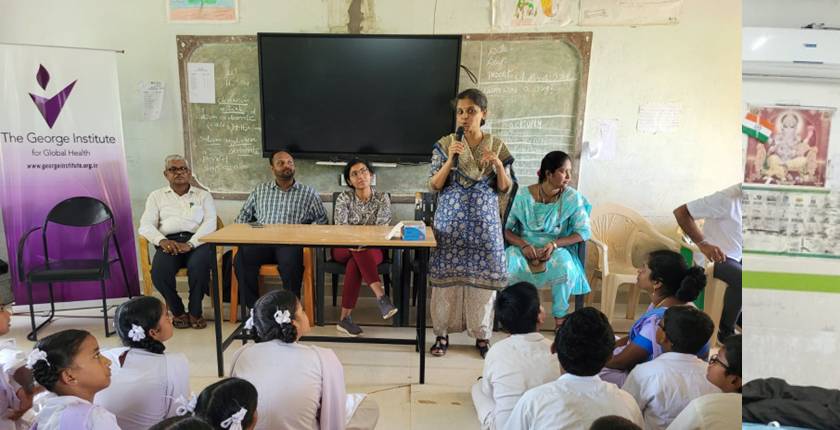
The team attends an assembly at a school in Rangoi village in Srikakulam district of Andhra Pradesh
Guest blogger
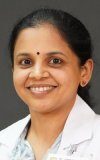
Associate Professor, Department of Pediatric Nephrology,
St John's Medical College Hospital, Bangalore

Pediatric Nephrology Fellow
Division of Nephrology and Hypertension,
University of North Carolina, Chapel Hill, NC



